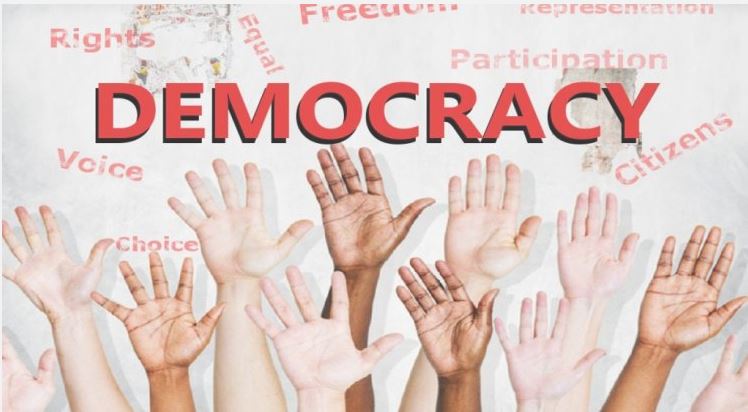The gale of defections from the opposition political parties to the ruling All Progressives Congress (APC), over flimsy reasons may lead to one-party state, which will threaten our nascent democracy. Mostly affected are politicians from the Peoples Democratic Party (PDP), Labour Party (LP) and New Nigerian Peoples Party (NNPP). The trend is disturbing and gives cause for alarm.
Among the latest high-profile defectors are Delta State governor, Sheriff Oborevwori, his predecessor, Senator Ifeanyi Okowa, and other elected officials of the state, who moved from the PDP to APC. Similarly, defections have also been recorded at the state level and National Assembly, where the movement has increased the APC numerical strength considerably. The National Assembly, as currently constituted, comprises the Senate with 109 seats, and the House of Representatives, with 360 seats. With the death of Senator Ifeanyi Ubah (Anambra South) and election of Monday Okpebholo as Edo State governor, the Senate has been reduced to 107 members.
At the commencement of the 10th National Assembly, the APC controlled 59 seats in the Senate and 175 in the House of Representatives. The opposition parties had 50 seats in the Senate and 182 in the House of Representatives. In the House of Representatives, the breakdown showed the PDP had 118 lawmakers, LP (35), NNPP (19), All Progressives Grand Alliance (five), Social Democratic Party (two), African Democratic Congress (two), and the Young Progressives Party (one), while two seats were declared vacant. In the Senate, the PDP held 36 seats, LP (eight), NNPP (two), SDP (two), APGA (one), and YPP (one), making a total of 50.
However, the wave of defections has eroded the opposition’s numerical strength and increased the APC’s dominance in both chambers. No fewer than 30 lawmakers, comprising six Senators and 24 Reps, have dumped the opposition parties and defected to the ruling APC. Of the six senators, four were from the PDP, while the remaining two were from the LP and NNPP. Among the 24 Reps, 16 were from the PDP, five from the LP, and three from the NNPP. Overall, the APC now controls 265 seats across the two chambers, while opposition lawmakers have been reduced to 202. The development is worrisome, raising fears of the country tilting towards one-party system. The main concern is on the future of democracy in the country.
Democracy thrives in an atmosphere of multi-party system. Democracy without opposition will likely wither and die. Opposition political parties are major ingredients of democracy. They provide the barometer with which the activities of the ruling party are measured. The party in power needs the criticisms from the opposition to be on its toes and offer good governance to the people. The opposition provides the alternative voice on how the system should work. In the Western world, the leading opposition political party analyses actions and programmes of the party in power and offers alternative viewpoints. Nigeria needs a strong and robust opposition to keep the system working optimally.
The gains recorded in the First and Second Republics were essentially on account of the vibrancy of the opposition at the time. While the coalition of the Northern Peoples’ Congress (NPC) of Alhaji Abubakar Tafawa Balewa and National Council of Nigerian Citizens (NCNC) of Dr. Nnamdi Azikiwe, ran the government, the Action Group (AG) led by Chief Obafemi Awolowo, provided robust opposition that kept the administration in check.
In the Second Republic, the principled opposition from Awolowo’s Unity Party of Nigeria (UPN), Peoples Redemption Party (PRP) of Aminu Kano and Great Nigeria Peoples Party (GNPP) led by Waziri Ibrahim, put the Shehu Shagari federal government of National Party of Nigeria (NPN)/Nigerian Peoples Party (NPP) accord on its toes. Azikiwe’s NPP later joined the other opposition groups when its alliance with the NPN crashed.
At the state level, the culture of opposition resonated, making the governors to perform their duties. For a diverse society as Nigeria, multi-party democracy offers all citizens the opportunity to express their political views. We believe that the drift towards one-party state will stifle such voices.
Therefore, the opposition should be allowed to thrive. The recent moves to weaken the opposition should not be allowed to succeed. Weakening the opposition will not augur well for our fragile democracy. The suppression of opposition can explain the poor development of democracy in some African countries.
Undoubtedly, people have the right to migrate from one party to another. The Constitution guarantees freedom of movement and association but when the exercise is carried out without convincing reasons, the essence is lost. Some of the political defections are self-serving and should not be encouraged. Unrestrained defections may undermine this democracy. Let our politicians remain in their political parties and build them.

